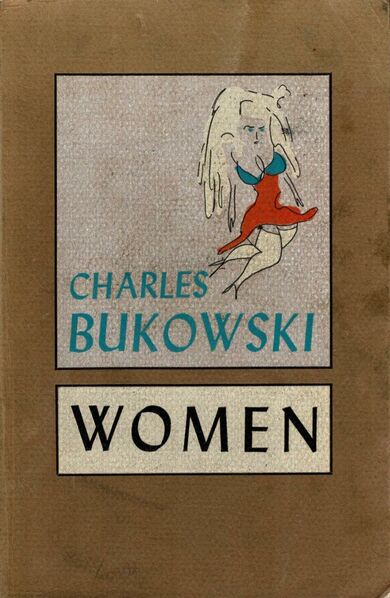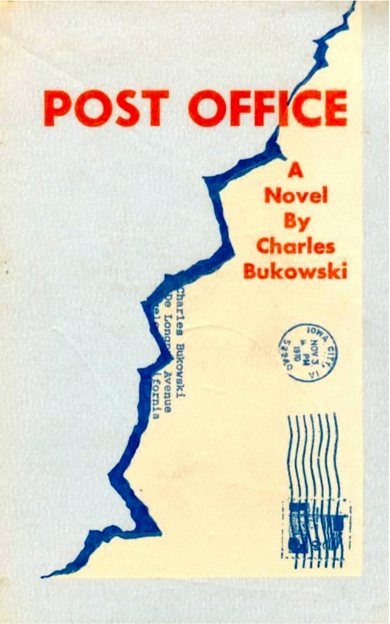I took women either to the boxing matches or to the racetrack. That Thursday night I took Katherine to the boxing matches at the Olympic auditorium. She had never been to a live fight. We got there before the first bout and sat at ringside. I drank beer and smoked and waited.
“It’s strange,” I told her, “that people will sit here and wait for two men to climb up there into that ring and try to punch each other out.”
“It does seem awful.”
“This place was built a long time ago,” I told her as she looked around the ancient arena. “There are only two restrooms, one for men, the other for women, and they are small. So try to go before or after intermission.”
“All right.”
The Olympic was attended mostly by Latinos and lower class working whites, with a few movie stars and celebrities. There were many good Mexican fighters and they fought with their hearts. The only bad fights were when whites or blacks fought, especially the heavyweights.
Being there with Katherine felt strange. Human relationships were strange. I mean, you were with one person a while, eating and sleeping and living with them, loving them, talking to them, going places together, and then it stopped. Then there was a short period when you weren’t with anybody, then another woman arrived, and you ate with her and fucked her, and it all seemed so normal, as if you had been waiting just for her and she had been waiting for you. I never felt right being
alone; sometimes it felt good but it never felt right.
The first fight was a good one, lots of blood and courage. There was something to be learned about writing from watching boxing matches or going to the racetrack. The message wasn’t clear but it helped me. That was the important part: the message wasn’t clear. It was wordless, like a house burning, or an earthquake or a flood, or a woman getting out of a car, showing her legs. I didn’t know what other writers needed; I didn’t care, I couldn’t read them anyway. I was locked into my own habits, my own prejudices. It wasn’t bad being dumb if the ignorance was all your own. I knew that some day I would write about Katherine and that it would be hard. It was easy to write about whores, but to write about a good woman was much more difficult.
The second fight was good, too. The crowd screamed and roared and swilled beer. They had temporarily escaped the factories, the warehouses, the slaughterhouses, the car washes—they’d be back in captivity the next day but now they were out—they were wild with freedom. They weren’t thinking about the slavery of poverty. Or the slavery of welfare and food stamps. The rest of us would be all right until the poor learned how to make atom bombs in their basements.
All the fights were good. I got up and went to the restroom. When I got back Katherine was very still. She looked more like she should be attending a ballet or a concert. She looked so delicate and yet she was such a marvelous fuck.
I kept drinking and Katherine would grab one of my hands when a fight became exceptionally brutal. The crowd loved knockouts. They screamed when one of the fighters was on the way out. They were landing those punches. Maybe they were punching out their bosses or their wives. Who knew? Who cared? More beer.
I suggested to Katherine that we leave before the final bout. I’d had enough. “All right,” she said.
We walked up the narrow aisle, the air blue with smoke. There was no whistling, no obscene gestures. My scarred and battered face was sometimes an asset.
We walked back to the small parking lot under the freeway. The '67 blue Volks was not there. The '67 model was the last good Volks—and the young men knew it.
“Hepburn, they stole our fucking car.”
“Oh Hank, surely not!”
“It’s gone. It was sitting there.” I pointed. “Now it’s gone.” “Hank, what will we do?”
“We’ll take a taxi. I really feel bad.”
“Why do people do that?”
“They have to. It’s their way out.”
We went into a coffee shop and I phoned for a cab. We ordered coffee and doughnuts. While we had been watching the fights they had pulled the coathanger and hotwire trick. I had a saying, “Take my woman, but leave my car alone.” I would never kill a man who took my woman; I might kill a man who took my car.
The cab came. At my place, luckily, there was beer and some vodka. I had given up all hope of staying sober enough to make love. Katherine knew it. I paced up and down talking about my '67 blue Volks. The last good model. I couldn’t even call the police. I was too drunk. I’d have to wait until morning, until noon.
“Hepburn,” I told her, “it’s not your fault, you didn’t steal it!” “I wish I had, you’d have it now.”
I thought of 2 or 3 young kids racing my blue baby down along the Coast Highway, smoking dope, laughing, opening it up. Then I thought of all the junkyards along Santa Fe Avenue. Mountains of bumpers, windshields, doorhandles, wiper motors, engine parts, tires, wheels, hoods, jacks, bucket seats, front wheel bearings, brake shoes, radios, pistons, valves, carburetors, cam shafts, transmissions, axles—my car soon would be just a pile of accessories.
That night I slept up against Katherine, but my heart was sad and cold.






